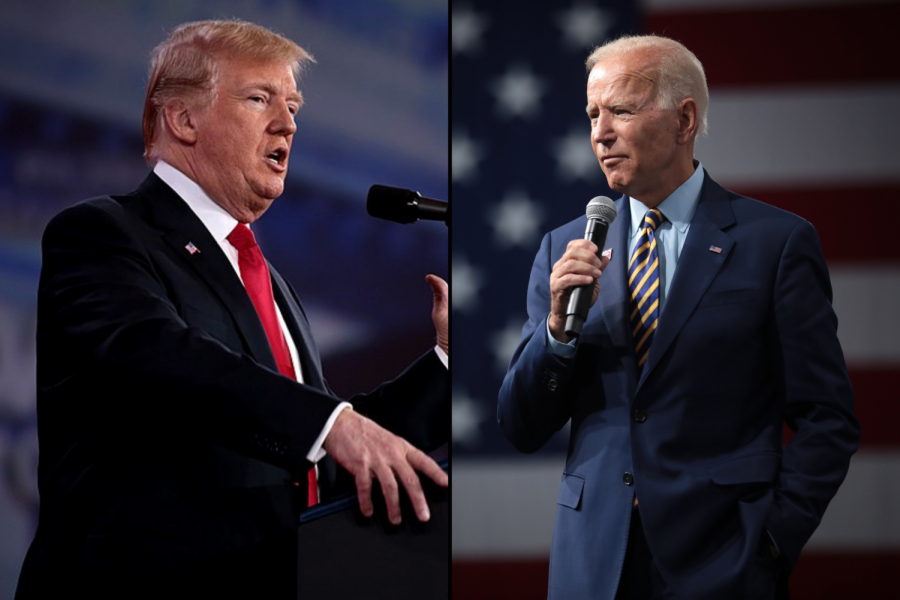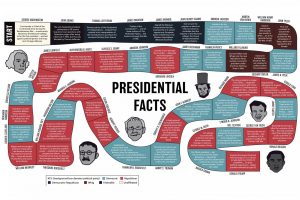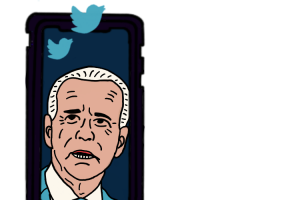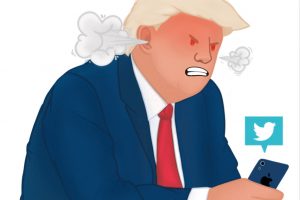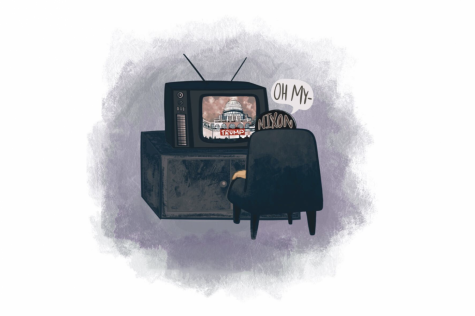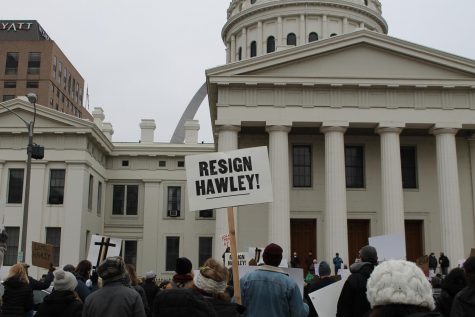Debate chaos and the end of civil discourse
Photo by Emma Kaden. Used under creative commons license.
President Donald Trump and Former Vice President Joe Biden take the stage at Case Western Reserve University in Cleveland, Ohio for the presidential debate.
77.
That’s how many interruptions President Trump hurled at his opponent from 6 feet away during the first of two debates before the election. The Sept. 29th debate was widely recognized by analysts from both sides of the aisle as a chaotic, unproductive yelling match.
Moderator Chris Wallace (a registered Democrat from Fox News) was placed in a challenging position throughout the night. His initial strategy was to play the detached, uninterested host: simply there to ask questions and let the political theater play out. Discussing his preparation with Fox News, Wallace said that “if I’ve done my job right, at the end of the night, people will say, ‘That was a great debate, who was the moderator?’” Of the many lingering questions after the first presidential debate, the moderator’s identity was not one of them.
Within the first few minutes of the debate, Wallace discovered that his strategy wouldn’t work. From the first question, he struggled to maintain order and stay impartial amidst personal attacks aimed at Biden and wide-ranging misinformation from Trump. Instead of the neutral and detached persona he strived for, Wallace offended pundits on both sides with what they perceived as bias. Conservatives complained of overly harsh enforcement of the rules towards Trump, while the Biden camp thought he didn’t do enough.
One particularly interesting moment came when the president refused to condemn the white supremacist group Proud Boys, founded by Gavin McInnes (an original founder of Vice News). Trump told the violent group to “stand back and stand by,” a phrase that has now been adopted as a rallying call by the group itself. This dismissal from Trump is seen as a seal of approval for white supremacy from the highest levels of government. The fact is that Trump can’t alienate his white supremicist supporters because he is relying on them to win the election, especially now.
Groups like the Proud Boys and conspiracy theories like Qanon (an online right-wing ideology classified as a domestic terrorist threat by the FBI) are becoming more critical to Trump’s reelection as his final-stretch campaign messaging fails to appeal to moderate Republicans. He has continually struggled to define and contrast his platform with Biden’s on policy issues, and has instead continued to repeat tired lines of attack on personality, not policy.
This was especially apparent during the September debate, where Trump spent far more time attacking Biden’s personality and attempting to portray him as a socialist. This strategy is baffling considering the incredible unpopularity of Trump’s brash personality, even among Republican party loyalists. On the other hand, Biden has a longstanding political reputation and has gained American trust. He’s a candidate that makes people comfortable, especially in such a volatile time.
The strongest evidence of American’s distaste for Trump’s behavior comes from a survey by the New York Times and Siena College, where 65% percent of Pennsylvania and Florida voters say they disapprove of Trump’s debate conduct. Additionally, 48% percent of these same voters say they support Trump less after the debate. These states, both marginal swing states, are crucial to Trump’s reelection chances.
Overall, the biggest loser from the first presidential debate was not Trump or Biden, but rather the American people. They were deprived of a critical opportunity to hear substantial information to guide their election day decision, and instead forced to sit through 90 minutes of pointless ego-driven blunder. This is politics in America.
Your donation will support the student journalists of Kirkwood High School. Your contribution will allow us to purchase equipment and cover our annual website hosting costs.
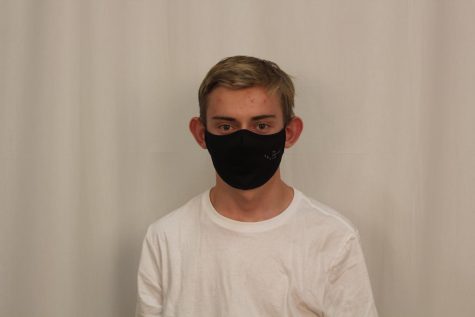
he/him
Favorite musical artist: Jacob Collier
Favorite quote: "You are personally responsible for becoming more ethical than the society you grew...


